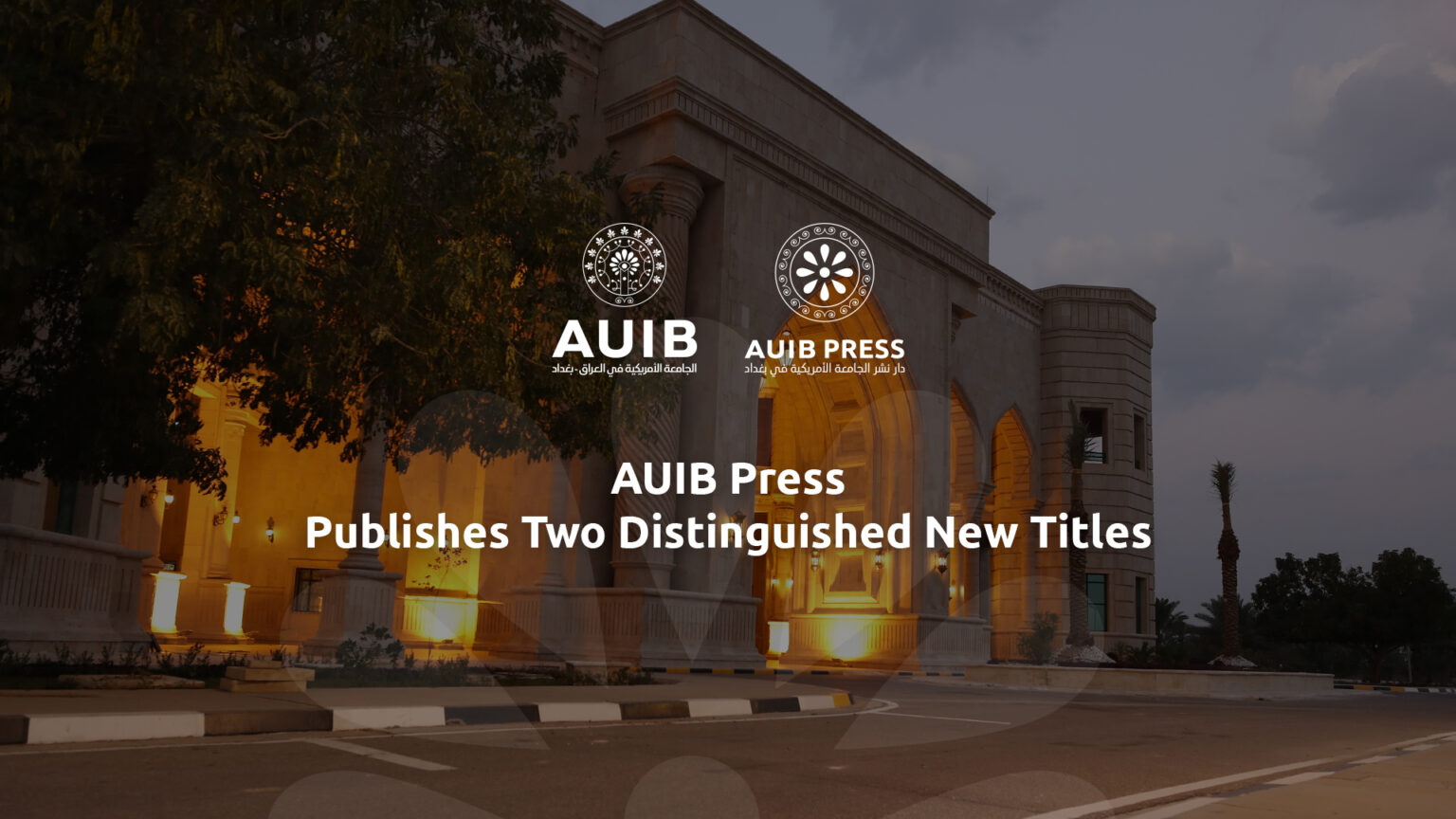The American University of Iraq-Baghdad Press (AUIB Press) has made available to Arabic readers two new books, distinguished by their in-depth analysis of major issues that are central to the lives of Eastern nations and of Iraq, in particular. The first title, “Asia Versus the West,” authored by Dariush Shayegan and translated by Haidar Najaf, is “a pivotal work that reimagines the relationship between civilizations. It calls for a spiritual and cultural awakening in Asia—one that enables dialogue with the West from a position of equality, not dependency.” As for the second title, “Reclaiming a Plundered Past: Archaeology and the Building of the Modern Nation in Iraq,” authored by Magnus Bernhardsson and translated by Ahmad Bassem Saadoun, it is “essential reading for understanding how archaeology in Iraq was never just about ancient ruins—it was a powerful tool in shaping national identity, sovereignty, and cultural pride in the face of colonial exploitation.
Dariush Shayegan is considered one of the few Iranian thinkers who balanced their knowledge of Western philosophy and its civilizational and epistemological output with a comparable interest in Asian philosophies and religions. His seminal book, “Asia in the Face of the West,” captures the essence of his principal ideas prior to the 1979 Iranian Revolution. Shayegan’s theory, as developed in this book, was not anti-Western; rather, its goal was to revive the Asian spirit—especially the spiritual essence of Indian and Islamic traditions. The author aspires to inter-cultural exchange and affirms that no culture in our present age is “pure.” At the same time, he argues that spiritual tendencies are an Eastern privilege over the West, despite the latter’s tremendous material advancement.
Shayegan believes that Western thought, over the past three centuries, has degenerated from intuitive thinking to a technical worldview, and from preoccupation with the afterlife to the worship of history. This shift has led to nihilism and a gradual erosion of all beliefs—including those that form part of the spiritual heritage of Asian civilizations. The author concludes that for Asian societies to attain a healthy and wholesome life, they must draw from their rich heritage, avoid being deceived by the appearances of Western civilization, guard against Westernization, and strive diligently to avoid falling into the “trap of heedlessness” that he persistently warns against.
The second title, “Plundered Past: Archaeology and Nation-Building in Modern Iraq,” examines the ways in which archaeology and politics intersected in Iraq during British occupation and the early years of the Iraqi state, before World War II. Bernhardsson begins the book by highlighting the work of British archaeologists who conducted intensive excavations in Iraq and sent their discoveries to European museums. He then traces how Iraqis’ growing sense of national belonging led them to confront the British over the antiquities law and the division of archaeological finds between Iraq and foreign excavators. He illustrates how Iraq’s control over its archaeological heritage was directly tied to the balance of political power, and how that control increased as authority shifted to the Iraqi government. Finally, Bernhardsson discusses how Iraqi leaders employed archaeology and history to legitimize the state and its political practices.
The looting of the Iraqi Museum in April 2003 sparked global outcry over the loss of artifacts that are part of humanity’s cultural heritage. Although the losses were unprecedented, the plundering of the national museum was not the first time that Iraq’s heritage had been looted or used for political purposes. Since the inception of archaeology as a modern discipline in the 19th century, Europeans began excavating and appropriating Iraqi antiquities, viewing them as remnants of the cradle of civilization. Since the founding of Iraq in 1921, the modern state used archaeology to forge a connection between itself and the ancient Mesopotamian and Islamic empires, thereby cultivating a sense of national belonging among Iraqis of various sects and religions.
